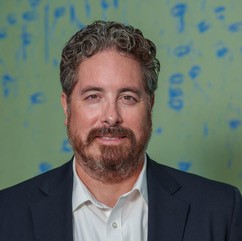The shear force is all around us: Mechanotransduction of cancer and immune cells in fluid flow
Michael R. King, PhD
- Lawrence Wilson Professor and Department Chair of Biomedical Engineering
Friday, April 21st at 11:45 am
In-Person in SMBB 2650!

Many types of cancer metastasize via the bloodstream, where circulating tumor cells (CTCs) originating from the primary tumor can travel through the circulation or lymphatic system and engraft in distant organs. Previously our laboratory found that cancer cells exposed to physiological levels of fluid shear stress (FSS) are dramatically more susceptible to undergoing apoptosis via TRAIL protein, inspiring a new therapeutic drug delivery approach to target metastatic cells in the circulation. The FSS response of CTCs and their neutralization by lipid nanoparticle conjugation to the surface of circulating immune cells has been demonstrated with in vitro cell line experiments, orthotopic mouse models of metastasis, and analysis of primary CTC aggregates isolated from metastatic cancer patients. We later learned that this shear stress is primarily mediated by Piezo1 activation, and is modulated by interacting with aggregated stromal cells such as cancer-associated fibroblasts. Interestingly, we recently found that FSS activation of Piezo1 also dramatically enhances the activation of T cells and dendritic cells, which may have important implications for various immunotherapy applications.
Michael R. King is the J. Lawrence Wilson Professor and Department Chair of Biomedical Engineering at Vanderbilt University. Previously he was the Daljit S. and Elaine Sarkaria Professor at Cornell University, and before that started his faculty career at the University of Rochester. He completed a PhD in chemical engineering at the University of Notre Dame and postdoctoral training in bioengineering at the University of Pennsylvania. He has written textbooks on the subjects of statistical methods and microchannel flows, and has received several awards including the NSF CAREER Award, Outstanding Research Awards from the American Society of Mechanical Engineers and the American Society of Clinical Chemistry, and was a James D. Watson Investigator of New York State. King is a Fellow of the American Institute of Medical and Biological Engineering (AIMBE), Biomedical Engineering Society (BMES), International Academy of Medical and Biological Engineering (IAMBE), American Association for the Advancement of Science (AAAS), and the National Academy of Inventors (NAI) and served as founding Vice President of the International Society of Bionic Engineering. Since 2013 he has been the Editor-in-Chief of Cellular and Molecular Bioengineering, an official journal of the BMES. He previously served as Chair of the BME Council of Chairs, and is currently the Chair-Elect of the AIMBE College of Fellows.
Biomedical Engineering Seminar Series
Bioengineering Elevated Talks: Celebrating 50 years of the Department of
Biomedical Engineering at the University of Utah